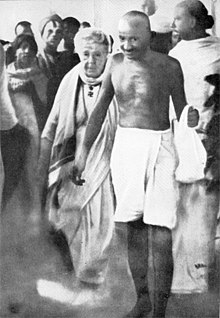
Non-Cooperation Movement (1920–1922)
The Non-Cooperation Movement was a mass protest led by Mahatma Gandhi against British rule, aiming for Swaraj (self-rule) through non-violent resistance.
Key Features:
- Boycott of British Goods & Institutions – Indians were urged to stop using British products, schools, courts, and government services.
- Promotion of Swadeshi – Encouragement of Indian-made goods and self-reliance.
- Resignation from Government Jobs – Many leaders and workers left their posts as a sign of protest.
- Refusal to Pay Taxes – Gandhi called for non-payment of taxes to weaken British rule.
Impact & Withdrawal:
- The movement gained massive support across India.
- However, after the Chauri Chaura incident (1922), where a violent mob killed policemen, Gandhi withdrew the movement, emphasizing non-violence.
- Though it ended, it laid the foundation for future independence movements.
The Non-Cooperation Movement was India’s first large-scale civil disobedience movement, proving the power of peaceful resistance against colonial rule.